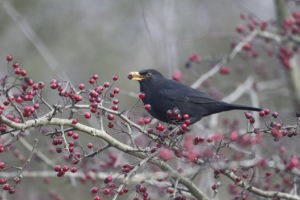
This network will examine what multispecies storytelling can contribute to participatory decision-making and landscape valuation in community settings. Multispecies approaches have emerged as significant interdisciplinary bridges between the natural sciences and arts and humanities. Research in this area takes place across environmental humanities subject areas and encompasses a rich and diverse set of methodologies and political and ethical emphases. What connects these approaches and characterises them as ‘multispecies’ is a commitment to non-anthropocentric ways of thinking about nature.
Narratives of landscape mediate knowledge, inform public understanding, and contribute to the meanings and values assigned to place and space. The use of narrative to capture individual interactions and engagements with place is well established and storytelling practices have proved to be an effective method to elicit and explore the non-monetary values people attach to nature. Narratives can help to build consensus where contested values, ideas, and beliefs are attributed to specific places. Rather than assigning abstract values to nature as a monolithic entity, narratives of a specific place engage with the actual relations humans have with nature. Where decisions about land use and climate change strategies take account of localised effects and risks, a pragmatic narrative approach emphasises meaningful interactions between humans and nature, can help us to focus on what is significant, and, in doing so, inform policy.
Traditional landscape use and valuation frameworks have focused on the benefits of nature for people. Multispecies storytelling draws on narrative as a method but reorients the approach to look at nature through a more-than-human lens. Rethinking our relations with other species invites the production of new narratives through storytelling practices that can reshape understanding and knowledge of landscape value, heritage, and aesthetics. This project uses multispecies approaches to think about who speaks on behalf of nature, enlarge a group of stakeholders to include species
other than humans, and use forms of storytelling to contribute to local participatory valuation and decision-making processes about land use.
The project is a collaboration between the Centre for Human Animal Studies, Edge Hill University and University of East Anglia which is home to the Nature Writing Archive at the British Archive for Contemporary Writing. The network brings together scholars working across creative and critical multispecies approaches to address the twin issues of landscape valuation and local empowerment. The project has partnered with Burscough Community Farm and Liverpool Museums and Galleries.
